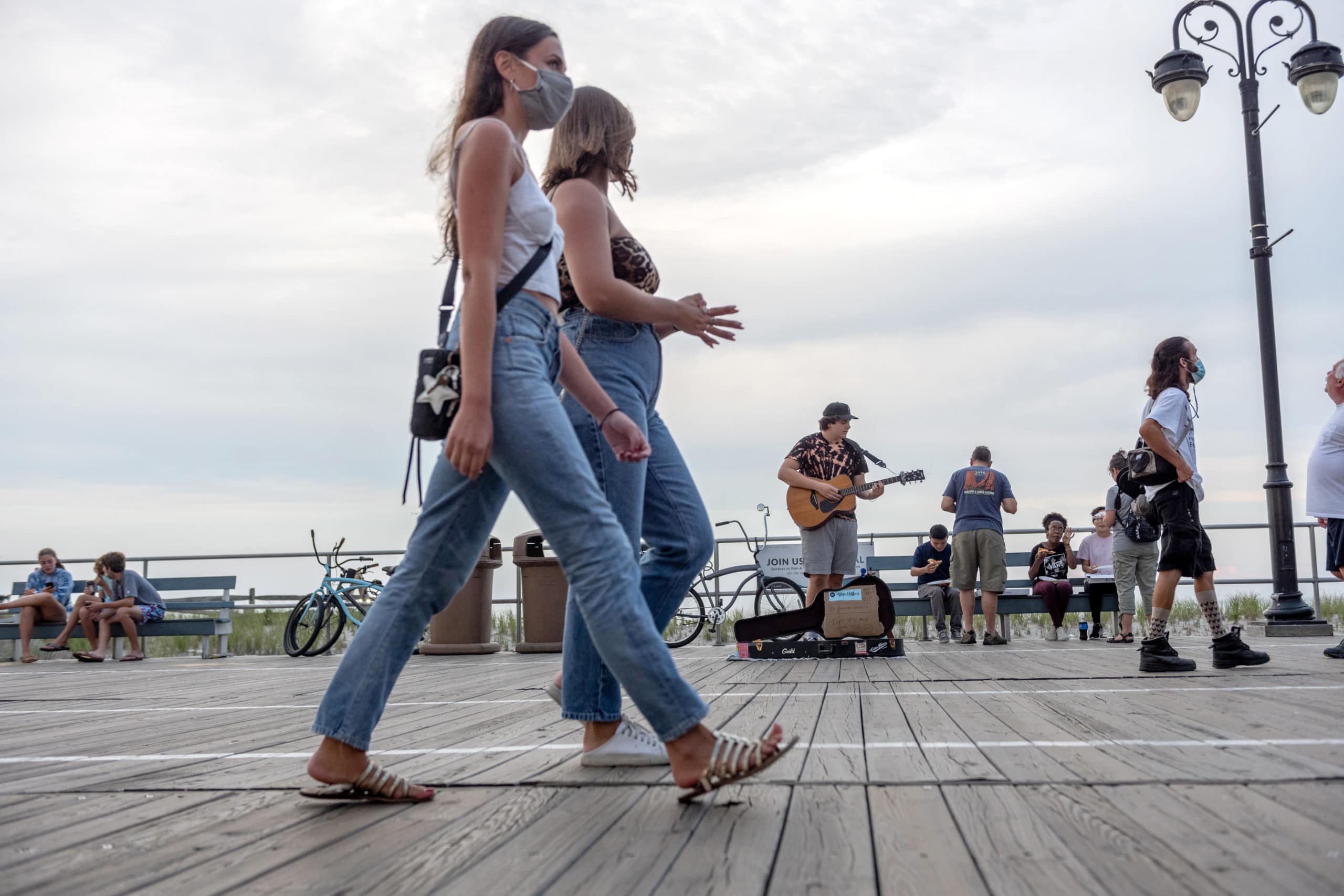Young adults are the most likely demographic to have signs of negative mental health during the Covid-19 pandemic while older Americans at highest risk of the virus have the least stress and anxiety, a new Covid Response Tracking Study poll from the National Opinion Research Center (NORC) finds, as the coronavirus continues to take a large mental health toll on Americans months into the pandemic.
KEY FACTS
The number of Americans reporting psychosomatic symptoms of stress and anxiety like trouble sleeping, feeling nervous and tired, headaches, and crying largely steadily decreases with each age bracket, the poll finds.
The number of Americans reporting psychosomatic symptoms of stress and anxiety like trouble sleeping, feeling nervous and tired, headaches, and crying largely steadily decreases with each age bracket, the poll finds.
Symptoms of stress and anxiety are also highest among women, those with less education and income, those who had been exposed to someone with Covid-19 and those who frequently read, watch or talk about the pandemic.
The percentage of respondents reporting symptoms and who report negative mental health are largely unchanged from previous polls in May and June/July, showing how the mental toll of the coronavirus pandemic has not improved as it stretches on.
Loading...
51% of Americans read, watch or talk about the pandemic “often” or “most of the time,” and Democrats and those who are more educated are more likely to pay attention to and discuss the pandemic than Republicans, Independents and those with less education.
Though younger Americans are statistically at less risk of serious Covid-19 complications and death than older Americans—and have drawn the most scrutiny for continuing to socialize during the pandemic—they are also among the most likely groups to have been affected by job losses during the pandemic.
BIG NUMBER
2 in 10. That’s the number of respondents who say they “frequently suffer from anxiety, depression or irritability,” while five in 10 respondents say they at least sometimes experience those issues. The poll also found that the average person experiences approximately five out of the 15 symptoms associated with stress and anxiety.
KEY BACKGROUND
The negative mental health toll of the coronavirus has been a serious issue since it began, as lockdown measures, the virus itself and the vast economic fallout has had a negative impact on a broad swath of the population. An April poll from the American Psychiatric Association found that 36% of Americans believed the pandemic had taken a “serious toll” on their mental health, while an August survey from the Commonwealth Fund found that approximately one-third of Americans reported negative mental health issues—far more than in the other countries surveyed. A previous NORC Covid Response Tracking Study poll in June also found that only 14% of those surveyed felt very happy, marking the lowest response recorded in nearly 50 years.
FURTHER READING
COVID Response Tracking Study (NORC)
More Young People Living With Their Parents Than In The Great Depression, Report Says (Forbes)
-Alison Durkee, Forbes Staff
Loading...
